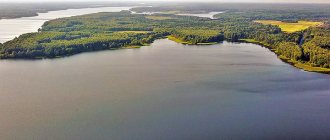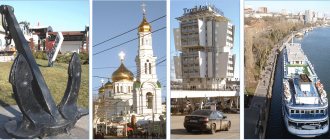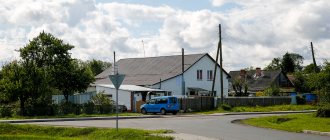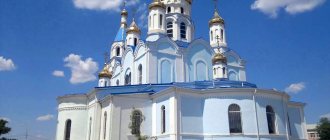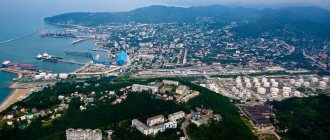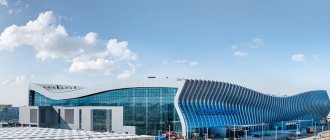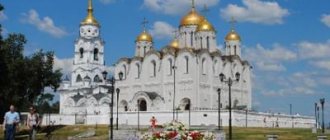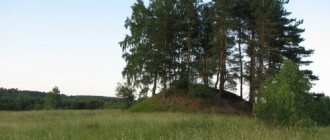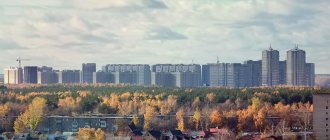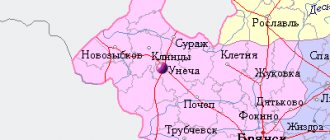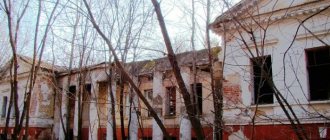| City of Kostomuksha Koštamuš Coat of arms |
| A country | Russia, Russia |
| Subject of the federation | Republic of KareliaRepublic of Karelia |
| Urban district | Kostomuksha |
| Coordinates | 64°35′00″ n. w. 30°36′00″ E. d. / 64.58333° n. w. 30.60000° E. d. / 64.58333; 30.60000 (G) [www.openstreetmap.org/?mlat=64.58333&mlon=30.60000&zoom=12 (O)] (Z)Coordinates: 64°35′00″ N. w. 30°36′00″ E. d. / 64.58333° n. w. 30.60000° E. d. / 64.58333; 30.60000 (G) [www.openstreetmap.org/?mlat=64.58333&mlon=30.60000&zoom=12 (O)] (I) |
| And about. Heads of municipalities | Bendikova Anna[1] |
| Based | in 1977 |
| City with | 1983 |
| Center height | 220 |
| Population | ↗29,511[2] people (2016) |
| National composition | Russians, Ukrainians, Karelians, Finns, Belarusians |
| Names of residents | Kostomukshan, Kostomukshanin, Kostomukshanka |
| Timezone | UTC+3 |
| Telephone code | +7 81459 |
| Postal codes | 186930 and 186931 |
| Vehicle code | 10 |
| OKATO code | [classif.spb.ru/classificators/view/okt.php?st=A&kr=1&kod=86406 86 406] |
| Official site | [www.kostomuksha-city.ru tomuksha-city.ru] |
| In the encyclopedia “My City” | [www.mojgorod.ru/r_karelija/kostomuksha] |
| Kostomuksha Moscow |
| Petrozavodsk Kostomuksha |
Audio, photo and video
on Wikimedia Commons
K: Settlements founded in 1977
Kostomuksha
(Karelian Koštamuš, Finnish Kostamus, Vepsian Kostamukš) is a city (since 1983) in Russia, in Karelia.
Population - 29,511[2] people. (2016). Administrative center of the Kostomuksha urban district. Kostomuksha is the third most populous city in Karelia.
The city is located in the north of the West Karelian Upland, the distance to Petrozavodsk is 490 km, the distance to St. Petersburg is 930 km. The distance to the Russian-Finnish border is 30 km (international road checkpoint Lyttä-Vartius).
The city-forming enterprise is JSC Karelsky Okatysh (until 1993, Kostomuksha Mining and Processing Plant)[3].
By Order of the Government of the Russian Federation dated July 29, 2014 No. 1398-r “On approval of the list of single-industry towns,” the Kostomuksha urban district is included in the category “Single-industry municipalities of the Russian Federation (single-industry towns) in which there are risks of deterioration of the socio-economic situation” [4].
Content
- 1. History
- 2 Coat of arms
- 3 Physiographic characteristics 3.1 Geographical location
- 3.2 Climate
- 3.3 Time zone
- 6.1 Industry
Story
In 1967, a decision was made to design a mining and processing plant. The settlement began to be built in the 1970s in connection with the development of a new iron ore deposit, discovered in 1946. In 1973, an intergovernmental Soviet-Finnish agreement on the construction of a mining and processing plant was signed. In May 1977, an agreement was concluded with JSC Finn-Stroy.
By the decree of the Presidium of the Supreme Council of the Karelian Autonomous Soviet Socialist Republic of November 17, 1977, the settlement that grew up during the construction of the mining and processing plant received the status of an urban-type settlement.
In February 1981, a competition was announced to name the city. It was proposed to name the city Kontokki or Kostomuksha - after the names of the villages on the site of which the city was built. It was also supposed to name the city Sampo[5]. The ancient Karelian village of Kostomuksha was located on the shore of Lake Kostomuksha, which is now located on the territory of the Karelsky Okatysh mining and processing plant. Translated from Karelian Kostamus
means revenge, retribution, retribution. The legend about the origin of the name of these words was recorded in 1892 by the Finnish ethnographer and artist Louis Sparre.
In 1982, the first stage of the Kostomuksha mining and processing plant was put into operation, in 1983 - the second, in 1984 - the third and last.
By decree of the Presidium of the Supreme Soviet of the RSFSR dated April 25, 1983, Kostomuksha received the status of a city of republican subordination.
General information
Kostomuksha is the administrative center of the urban settlement of the same name.
The city is not even 30 years old – the date of birth is considered to be 1983. Today, just under 30 thousand residents live here and the population is slowly but increasing. A distinctive feature of Kostomuksha is its location just 30 km from the border with Finland. This is the reason for the location of the Lyttä-Vartius customs post here. Road and rail transport constantly runs through it, which further enlivens the life of the town.
The post appeared here before the city - in 1960, and at first it worked only to pass Finnish workers who helped develop the local iron ore quarry. In the 1990s, the status of the post grew to a full-fledged customs office, and today it handles up to 300 cars per day in both directions.
Physiographic characteristics
Geographical position
The city is located in the north of the West Karelian Upland, 35 kilometers from the Russian-Finnish border.
Climate
The city of Kostomuksha belongs to the regions of the Far North.
Kostomuksha is located on the border of the middle and northern taiga subzones. The climate is influenced by many factors, including frequent cyclones from the Atlantic Ocean and the Barents Sea, which bring thaws and snowfalls in winter, and rainy and cool weather in summer. Based on the combination of these factors, the climate of Kostomuksha is a cross between the climate of St. Petersburg and Murmansk. Winter is moderately cold, with frequent weather changes; when the cold Siberian anticyclone invades, severe frosts are possible. Summer is short and cold, and usually rainy.
| Climate of Kostomuksha | |||||||||||||
| Index | Jan. | Feb. | March | Apr. | May | June | July | Aug. | Sep. | Oct. | Nov. | Dec. | Year |
| Average maximum, °C | −8 | −8 | −3 | 5 | 9 | 15 | 18 | 17 | 12 | 4 | −1 | −5 | 4 |
| Average minimum, °C | −15 | −15 | −12 | −5 | 1 | 8 | 11 | 10 | 5 | −1 | −6 | −11 | −3 |
| Precipitation rate | 30 | 20 | 25 | 35 | 45 | 55 | 60 | 75 | 65 | 60 | 40 | 40 | 550 |
| Source: [www.svali.ru/catalog~73~22553~index.htm Tourist portal] | |||||||||||||
Timezone
| Kostomuksha is located in the Moscow time zone. The offset relative to UTC is +3:00. |
Transport
It’s a pity that it’s impossible to shorten the route to Petrozavodsk through Finland. Traveling to the capital is a problem. Buses run twice a day. They are nocturnal. One leaves at ten in the evening and arrives at half past six, the second starts at three in the morning and arrives, accordingly, a little later. Now
, however, they let in another one - “summer”. In general, people prefer trains. More precisely, they preferred it when they were daily. Now you can go to Kostomuksha by train or come to Petrozavodsk three times a week. At an inconvenient time. One of these trains is direct. The other two go through Suoyarvi, where passengers have to wait almost four hours until the St. Petersburg-Kostomuksha train arrives, to which Petrozavodsk cars are connected. In general, a nightmare and horror.
We experienced one of these transport horrors on our own skin, leaving the city, in the absence of a train, by bus. Without further ado and emotions: the only thing worse in my life than the night flight Kostomuksha - Petrozavodsk was the night trip by bus from Kalevala. Even now, sculpting these lines, I remember and shudder.
By the way, there is no bus station in Kostomuksha. Tickets are sold in private offices. For example, we bought at the Post Office, at the local taxi office.
Economy
Industry
Iron ore mining (JSC Karelian Okatysh), wood processing (Karelian Wood Company (PinArctik)), bakery, trout farm
An example of successful entrepreneurship in the border zone was the Russian-Finnish joint venture AEK, which supplies electrical products to the global auto giant Volvo and other European companies (Scania, Sisu, Timberjack, BRP)
Tourism
The territory of the Kostomuksha urban district includes the ancient Karelian village of Voknavolok, as well as the small settlements of Ladvozero, Pongagaba, Sudnozero, Tolloreka. Voknavolok is one of those settlements where the world famous epic “Kalevala” was created and belongs to the category of rune-singing villages of the White Sea Karelia. In the village of Ladvozero lie the ashes of the famous rune singer Arkhippa Perttunen, from whose words the collector of the Karelian-Finnish epic Elias Lönnrot wrote down a significant part of the Kalevala. In the north-west of the Kostomuksha urban district, by decision of the Russian government, it is planned to create the Kalevalsky National Park in order to preserve the virgin forests remaining in this area. The nature here is unique; there are corners where no human has ever set foot. In the area of Lake Kamennoe there is the Kostomuksha nature reserve, which, together with the Finnish Kuhmo nature reserve, is part of the first Russian-Finnish ecological park “Friendship”.
No special documents are required to enter the city. Since 2007, Kostomuksha has ceased to be part of the border zone[18].
Architecture
Since a huge number of buildings - from neat “panels” to kindergartens - were built here by Finns, the architecture of Kostomuksha is very different from typical Soviet architecture. The difference is so noticeable that at one time the famous blogger Varlamov published an extensive photo article about it. Its main theses were the following.
- The first feeling when entering the city is an elusive understanding that something is wrong with this “post-Soviet” town. The reason for this is a mixture of “USSR 1970s” architecture with buildings and courtyards “a la Finland” that stand out against its background.
- Finnish houses look like new, although they were built about 40 years ago. This applies to both standard five-story buildings and complexes like the cultural and sports complex.
- The pedestrian infrastructure is very different, as well as roads with safety islands unusual for small towns.
- There is a lot of greenery around the houses, and some areas give the feeling of being in Finland.
The modern infrastructure looks no worse - from numerous neat cafes to the brand new Siniranta water park. This place serves as a permanent resting place for miners and their families. The water park is small, but includes:
- beautiful bright swimming pool;
- bathrooms with hydromassage;
- separate pool for children with a fancy slide;
- massage room;
- Turkish hammam;
- Finnish sauna.
Culture
There is a municipal cultural institution, the Cultural and Museum Center of Kostomuksha.
, opened in 1981.
Four music festivals are held annually in Kostomuksha: in the summer - the chamber art festival, in the autumn - the art song festival, in the winter - the Nord Session rock music festival, and in the spring the Kanteletar festival of national culture.
The first issue of the city newspaper “Miner of Karelia” (editor V.V. Naumov) was published in 1981. Since 1991 it has been published under the name “News of Kostomuksha”[19].
Education
The city has secondary schools, a private school, the Municipal Budgetary Educational Institution "Gymnasium" (awarded with the Prize of the President of the Russian Federation), Lyceum No. 1 (also awarded the Prize), a school named after Pushkin, and a vocational school. Previously, the city had branches of St. Petersburg and Moscow higher educational institutions. Today, progressively developing distance education is receiving special development on the basis of the Center for Educational Development. The city also has a driving school, a Children's Art School named after L. Lankinen, a Children's Music School named after G. A. Vavilov, an Extracurricular Activities Center (ECC), offering a large selection of clubs and sections on interests (soft toys, playing the guitar, embroidery, theater, etc.) Those interested can enroll in different age groups to attend judo, karate, dance clubs “Armageddon”, “Viva Dance”, “Thumbelina”, “Partita”. A career guidance center has been created in Kostomuksha based on Finnish projects. An equally important organization in the city is the patriotic circle “Russians”. Most of the “Russians” live in Kostomuksha, however, there are followers in other cities of Karelia. The activities of the “Russians” include not only holding rallies and meetings with war veterans, but also holding actions in defense of peace in Kostomuksha and in other cities of Karelia and Russia.
Sport
Almost everything is good with sports in the city.
There is the Siniranta water park, popularly referred to simply as the “pool”. There are three pools in the building: swimming pool, hydromassage pool and children's pool. In general, nothing special, but when the water park was built, according to Olga Snigir, it was as if there was a national holiday in the city. This is because they tried to build a swimming pool in Kostomuksha three times. And it was only on the third that everything worked out.
Rollerblading, cycling and Nordic walking are popular in the city. Fortunately, asphalt and forested areas allow it.
But there is no good stadium in Kostomuksha, one with a modern surface. The residents really, really want him to appear. But for now, alas, children play football on the trampled sand.
As for gyms, it’s mostly men who are lucky. There are several good “gyms” in the city, and one of them is located right in the police building. But women, according to Olga, have nowhere to go: the halls are small and in basements.
— They want to build a biathlon complex here. And the matter is already in progress, but it is flowing somehow sluggishly... - Olga shares her experiences. – But it will definitely be built! In general, it’s prestigious to play sports now. It used to be that if you run in the morning, you are a nerd. And if you drink and smoke, well done. Now everything is exactly the opposite.
Excerpt characterizing Kostomuksha
- Who are you? - I'm an officer. “I would like to see,” said the Russian pleasant and lordly voice. Mavra Kuzminishna unlocked the gate. And a round-faced officer, about eighteen years old, with a face similar to the Rostovs, entered the courtyard. - We left, father. “We deigned to leave at vespers yesterday,” Mavra Kuzmipishna said affectionately. The young officer, standing at the gate, as if hesitant to enter or not to enter, clicked his tongue. “Oh, what a shame!..” he said. - Yesterday I wish... Oh, how sorry!.. Mavra Kuzminishna, meanwhile, carefully and sympathetically examined the familiar features of the Rostov breed in the face of the young man, and the tattered overcoat, and the worn-out boots that he was wearing. - Why did you need a count? – she asked. - Yeah... what to do! - the officer said with annoyance and grabbed the gate, as if intending to leave. He stopped again, undecided. – Do you see? - he suddenly said. “I am a relative of the count, and he has always been very kind to me.” So, you see (he looked at his cloak and boots with a kind and cheerful smile), and he was worn out, and there was no money; so I wanted to ask the count... Mavra Kuzminishna did not let him finish. - You should wait a minute, father. Just a minute,” she said. And as soon as the officer released his hand from the gate, Mavra Kuzminishna turned and with a quick old woman’s step walked into the backyard to her outbuilding. While Mavra Kuzminishna was running to her place, the officer, with his head down and looking at his torn boots, smiling slightly, walked around the yard. “What a pity that I didn’t find my uncle. What a nice old lady! Where did she run? And how can I find out which streets are the closest to catch up with the regiment, which should now approach Rogozhskaya? - the young officer thought at this time. Mavra Kuzminishna, with a frightened and at the same time determined face, carrying a folded checkered handkerchief in her hands, came out from around the corner. Without walking a few steps, she unfolded the handkerchief, took out a white twenty-five-ruble note from it and hastily gave it to the officer. “If their Lordships were at home, it would be known, they would definitely be related, but maybe... now...” Mavra Kuzminishna became shy and confused. But the officer, without refusing and without haste, took the piece of paper and thanked Mavra Kuzminishna. “As if the count were at home,” Mavra Kuzminishna kept saying apologetically. - Christ is with you, father! God bless you,” said Mavra Kuzminishna, bowing and seeing him off. The officer, as if laughing at himself, smiling and shaking his head, ran almost at a trot through the empty streets to catch up with his regiment to the Yauzsky Bridge. And Mavra Kuzminishna stood for a long time with wet eyes in front of the closed gate, thoughtfully shaking her head and feeling an unexpected surge of maternal tenderness and pity for the officer unknown to her. In the unfinished house on Varvarka, below which there was a drinking house, drunken screams and songs were heard. About ten factory workers were sitting on benches near tables in a small dirty room. All of them, drunk, sweaty, with dull eyes, straining and opening their mouths wide, sang some kind of song. They sang separately, with difficulty, with effort, obviously not because they wanted to sing, but only to prove that they were drunk and partying. One of them, a tall, blond fellow in a clear blue scent, stood above them. His face with a thin, straight nose would be beautiful if it were not for his thin, pursed, constantly moving lips and dull, frowning, motionless eyes. He stood over those who were singing, and, apparently imagining something, solemnly and angularly waved his white hand rolled up to the elbow over their heads, the dirty fingers of which he unnaturally tried to spread out. The sleeve of his tunic was constantly falling down, and the fellow diligently rolled it up again with his left hand, as if there was something particularly important in the fact that this white, sinewy, waving arm was certainly bare. In the middle of the song, screams of fighting and blows were heard in the hallway and on the porch. The tall fellow waved his hand. - Sabbath! – he shouted imperiously. - Fight, guys! - And he, without ceasing to roll up his sleeve, went out onto the porch. The factory workers followed him. The factory workers, who were drinking in the tavern that morning under the leadership of a tall fellow, brought skins from the factory to the kisser, and for this they were given wine. The blacksmiths from the neighboring cousins, hearing the noise in the tavern and believing that the tavern was broken, wanted to force their way into it. A fight broke out on the porch. The kisser was fighting with the blacksmith at the door, and while the factory workers were coming out, the blacksmith broke away from the kisser and fell face down on the pavement. Another blacksmith was rushing through the door, leaning on the kisser with his chest. The guy with his sleeve rolled up hit the blacksmith in the face as he was rushing through the door and shouted wildly: “Guys!” They're beating our people! At this time, the first blacksmith rose from the ground and, scratching the blood on his broken face, shouted in a crying voice: “Guard!” Killed!.. Killed a man! Brothers!.. - Oh, fathers, they killed him to death, they killed a man! - the woman squealed as she came out of the neighboring gate. A crowd of people gathered around the bloody blacksmith. “It’s not enough that you robbed people, took off their shirts,” said someone’s voice, turning to the kisser, “why did you kill a person?” Robber! The tall fellow, standing on the porch, looked with dull eyes first at the kisser, then at the blacksmiths, as if wondering who he should fight with now. - Murderer! – he suddenly shouted at the kisser. - Knit it, guys! - Why, I tied up one such and such! - the kisser shouted, waving off the people who attacked him, and, tearing off his hat, he threw it on the ground. As if this action had some mysteriously threatening significance, the factory workers who surrounded the kisser stopped in indecision. “Brother, I know the order very well.” I'll get to the private part. Do you think I won't make it? Nowadays no one is ordered to commit robbery! – the kisser shouted, raising his hat. - And let's go, look! And let's go... look! - the kisser and the tall fellow repeated one after another, and both moved forward along the street together. The bloody blacksmith walked next to them. Factory workers and strangers followed them, talking and shouting. At the corner of Maroseyka, opposite a large house with locked shutters, on which was a sign of a shoemaker, stood with sad faces about twenty shoemakers, thin, exhausted people in dressing gowns and tattered tunics. - He will treat the people properly! - said a thin craftsman with a scraggly beard and frowning eyebrows. - Well, he sucked our blood - and that’s it. He drove us, drove us - all week. And now he brought it to the last end, and left. Seeing the people and the bloody man, the worker who had been speaking fell silent, and all the shoemakers, with hasty curiosity, joined the moving crowd. -Where are the people going? - It is known where, he goes to the authorities. - Well, did our power really not take over? - And you thought how! Look what the people are saying. Questions and answers were heard. The kisser, taking advantage of the increase in the crowd, fell behind the people and returned to his tavern. The tall fellow, not noticing the disappearance of his enemy the kisser, waving his bare arm, did not stop talking, thereby drawing everyone’s attention to himself. The people mostly pressed on him, expecting from him to get a solution to all the questions that occupied them. - Show him order, show him the law, that’s what the authorities are in charge of! Is that what I say, Orthodox? - said the tall fellow, smiling slightly. – He thinks, and there are no authorities? Is it possible without bosses? Otherwise, you never know how to rob them. - What nonsense to say! - responded in the crowd. - Well, then they’ll abandon Moscow! They told you to laugh, but you believed it. You never know how many of our troops are coming. So they let him in! That's what the authorities do. “Listen to what the people are saying,” they said, pointing to the tall fellow. Near the wall of China City, another small group of people surrounded a man in a frieze overcoat holding a paper in his hands. - The decree, the decree is being read! The decree is being read! - was heard in the crowd, and people rushed to the reader. A man in a frieze overcoat was reading a poster dated August 31st. When the crowd surrounded him, he seemed embarrassed, but in response to the demand of the tall fellow who had pushed ahead of him, with a slight trembling in his voice, he began to read the poster from the beginning. “Tomorrow I’m going early to the Most Serene Prince,” he read (the brightening one! - the tall fellow solemnly repeated, smiling with his mouth and frowning his eyebrows), “to talk with him, act and help the troops exterminate the villains; We too will become the spirit of them...” the reader continued and stopped (“Saw?” the little one shouted victoriously. “He will untie you all the distance...”) ... - to eradicate and send these guests to hell; I’ll come back for lunch, and we’ll get down to business, we’ll do it, we’ll finish it, and we’ll get rid of the villains.” The last words were read by the reader in complete silence. The tall fellow sadly lowered his head. It was obvious that no one understood these last words. In particular, the words: “I will come tomorrow for lunch,” apparently even upset both the reader and the listeners. The understanding of the people was in a high mood, and this was too simple and unnecessary understandable; this was the very thing that each of them could say and that therefore a decree emanating from a higher power could not speak. Everyone stood in dejected silence. The tall fellow moved his lips and staggered. “I should ask him!.. That’s what he is?.. Well, he asked!.. But then... He’ll point out...” was suddenly heard in the back rows of the crowd, and everyone’s attention turned to the droshky of the police chief, accompanied by two mounted dragoons. The police chief, who had gone that morning by order of the count to burn the barges and, on the occasion of this order, had rescued a large sum of money that was in his pocket at that moment, seeing a crowd of people moving towards him, ordered the coachman to stop. - What kind of people? - he shouted at the people, scattered and timidly approaching the droshky. - What kind of people? I'm asking you? - repeated the police chief, who did not receive an answer. “They, your honor,” said the clerk in the frieze overcoat, “they, your highness, at the announcement of the most illustrious count, without sparing their lives, wanted to serve, and not like some kind of riot, as said from the most illustrious count...” “The count did not leave, he here, and there will be orders about you,” said the police chief. - Let's go! - he said to the coachman. The crowd stopped, crowding around those who had heard what the authorities said, and looking at the droshky driving away. At that time, the police chief looked around in fear and said something to the coachman, and his horses went faster. - Cheating, guys! Lead to it yourself! - shouted the voice of a tall guy. - Don't let me go, guys! Let him submit the report! Hold it! - voices shouted, and people ran after the droshky. The crowd behind the police chief, talking noisily, headed to the Lubyanka. - Well, the gentlemen and the merchants have left, and that’s why we are lost? Well, we are dogs, or what! – was heard more often in the crowd. On the evening of September 1, after his meeting with Kutuzov, Count Rastopchin, upset and offended by the fact that he was not invited to the military council, that Kutuzov did not pay any attention to his proposal to take part in the defense of the capital, and surprised by the new look that opened up to him in the camp , in which the question of the calm of the capital and its patriotic mood turned out to be not only secondary, but completely unnecessary and insignificant - upset, offended and surprised by all this, Count Rostopchin returned to Moscow. After dinner, the count, without undressing, lay down on the sofa and at one o'clock was awakened by a courier who brought him a letter from Kutuzov. The letter said that since the troops were retreating to the Ryazan road outside Moscow, would the count like to send police officials to lead the troops through the city. This news was not news to Rostopchin. Not only from yesterday’s meeting with Kutuzov on Poklonnaya Hill, but also from the Battle of Borodino itself, when all the generals who came to Moscow unanimously said that another battle could not be fought, and when, with the count’s permission, every night government property and residents were already removing up to half let's leave - Count Rastopchin knew that Moscow would be abandoned; but nevertheless, this news, communicated in the form of a simple note with an order from Kutuzov and received at night, during his first sleep, surprised and irritated the count. Subsequently, explaining his activities during this time, Count Rostopchin wrote several times in his notes that he then had two important goals: De maintenir la tranquillite a Moscow et d'en faire partir les habitants. [Keep calm in Moscow and escort the residents out of it.] If we allow this dual goal, every action of Rostopchin turns out to be impeccable. Why were the Moscow shrine, weapons, cartridges, gunpowder, and grain supplies not taken out? Why were thousands of residents deceived by the fact that Moscow would not be surrendered and ruined? – In order to maintain calm in the capital, Count Rastopchin’s explanation answers. Why were piles of unnecessary papers removed from public places and the Leppich ball and other items? – In order to leave the city empty, Count Rastopchin’s explanation answers. One has only to admit that something threatened the people's peace, and any action becomes justified.
